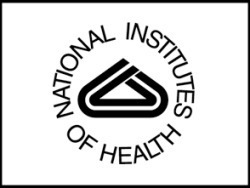by
Nancy Ryerson, Staff Writer | February 08, 2013
An imaging biomarker may help identify which depression patients would get the most out of a fast-acting drug, a new study from the National Institutes of Health found.
The drug scopolamine is used to treat motion sickness, but in 2006 researchers recognized its antidepressant properties. Unlike conventional antidepressants, which take weeks to kick in, scopolamine works in days, but not for all patients.
"So next we asked, does brain activity in any way inform as to who will and will not respond to the treatment?" lead study author Maura Furey told DOTmed News.



Ad Statistics
Times Displayed: 109945
Times Visited: 6642 MIT labs, experts in Multi-Vendor component level repair of: MRI Coils, RF amplifiers, Gradient Amplifiers Contrast Media Injectors. System repairs, sub-assembly repairs, component level repairs, refurbish/calibrate. info@mitlabsusa.com/+1 (305) 470-8013
People with depression have a documented tendency to process and remember negative emotions differently from those without depression, a trend researchers believe may come when the brain has trouble regulating its acetylcholine system, which plays an important role in temporary, or working, memory. The researchers posited that patients with depression would show different visual cortex activity in a brain scan when processing emotional information.
In the trials, participants' brain activity was monitored via MRI while they performed a working memory task. In some of the trials, the participants were shown a face on a computer screen and were later asked to recall if another face was of the same person. In another trial, participants had to match faces of different people that had the same kind of facial expression. After the trials, 15 depression patients and 21 non-depressed participants received infusions of a placebo and/or scopolamine. Mood changes were measured over the next several weeks.
At the end of the study, the scopolamine treatment reduced depression symptoms in 63 percent of patients. Eleven of the patients showed a significant clinical response, the study said. Those who showed the greatest response to scopolamine also displayed more activity in the lower visual cortex while identifying the facial emotions than the control group. The depressed participants showed the same amount of activity as the controls when matching pictures of the same person.
In the future, Furey said the drug may be developed into a nasal spray so it can quickly enter the blood stream and alleviate symptoms faster. She does not predict that imaging will be used to diagnose differences in depression, however.
"That would be too costly, I think," she said. "Maybe what we can do is use what we learn from methods like this to identify clinical subtypes that can be used outside of imaging in the long run."
Back to HCB News

